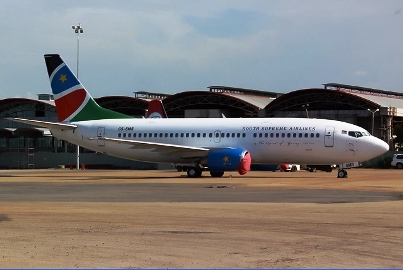South Sudan requires $25.5 million to control airspace
September 2, 2024 (JUBA) – South Sudan’s Ministry of Transport is says it requires $25.3 million to take over of its air traffic control system.
Since its independence in 2011, South Sudan’s airspace is under Sudan’s control.
The resolution came after the Transport minister, Madut Biar Yel presented a request to the cabinet for funds meant for operation of the Juba airspace control.
The South Sudanese Deputy Information minister, Jacob Maiju Korok said the Council of Ministers resolved that the country takes charge of its sovereign airspace from neighboring Sudan, following the completion of the Air Traffic Management System (ATMS) by China Harbor Engineering Company (CHEC).
“The total amount requested is US$25.3 million but the minister was advised to take the memo to the infrastructure and the economic clusters to be securitized to be tabled to the Council of Ministers for a final decision,” said Korok.
“Our center is now completed and that is why the minister tabled the US$25.3 million so that they can launch the control of our airspace. It is now ready and we are waiting for this money to be taken to the two clusters,” he added.
According to the deputy Information minister, taking full control of the airspace would enable the young nation to register airlines as well as collect fees.
He further said the air traffic management system, which began construction in July 2020, was completed in December 2023 and is now ready for commissioning.
The ATMS project is a cooperation project between South Sudan and the Chinese government, which includes training South Sudanese technicians to prepare them for managing the airspace. It also involves the construction of the Juba ATMS center, a new air traffic control tower and operation building, a surveillance system, a navigation system, a communication system, and the civil engineering and supporting facilities required by the system, such as meteorological facilities, calibration flight tests, and personnel training.
In 2016, South Sudan signed a three-year agreement with Sudan under the International Civil Aviation Organization (ICAO) to manage and control its airspace.
According to the agreement, however, Juba would take over control of its airspace territory after training and acquiring a qualified workforce to oversee the system, enabling the collection of fees from all aircraft using the airspace.

